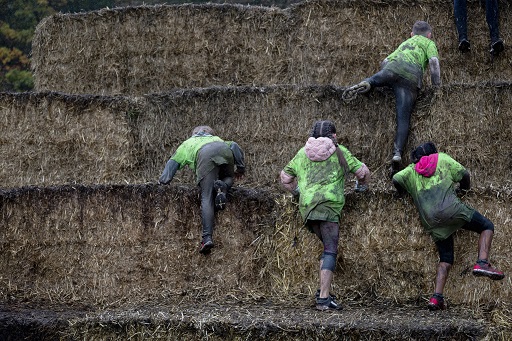3 Learning to be resilient
Can we learn to be resilient from the way that we are brought up from childhood – our early experiences and family background?
Psychologists have argued for more than 100 years that early childhood socialisation has a significant impact on the way that individuals relate to others later in life. This socialisation also supports our resilience, through:
- strong and supportive family relationships
- family social networks that extend into the community
- the development of good communication skills
- the ability to show empathy to others
- sociability, i.e. a liking for developing new social relationships.
Of course our liking for social relationships is also connected to our personality characteristics. Some people are more sociable than others.
Watch the following video to hear how chartered psychologist Professor Ivan Robertson connects resilience and sociability with personality.
Activity 3 Sociability and social networks
Watch the video ‘Resilience: personality’ and note how Professor Ivan Robertson explains how resilience is connected to our ability to develop social relationships.
Transcript: Video 2 Resilience: personality
Consider what his explanation means for you. Can you identify whether your personality type might have a positive impact on your resilience? Or might you need to find other ways to develop it? Make some notes in the box below.
Comment
Robertson describes the importance of personality and social support systems for resilience, but he emphasises that these aren’t static things and can be learned and developed. He identifies key factors, such as how we behave with others, how we build long-term friendships, our empathy and the ways in which we actively confront challenges. In particular, he also identifies the ability to remove ourselves from overwhelming emotions in difficult times as important.
You will be looking at both social networks and at the means to handle difficult emotions through the course.
The way we live our lives is not determined by our childhood experiences. There are many success stories of sports people, entrepreneurs, artists, scientists and people in your own community who have achieved in many fields, despite difficult backgrounds and obstacles to success.
You might think that if the personality characteristics that we are born with play such a key part in our resilience – it can’t be learned after all.
CEO Genie Joseph, founder of ACT RESILIENT, disagrees. She outlines three types of resilience that she has identified through her work with US military personnel and their families (Joseph, 2012). They are:
- Natural resilience – the resilience you are born with. It protects us and encourages us to play and learn and explore our world.
- Adaptive resilience – which occurs when challenging circumstances cause you to adapt and grow, becoming stronger and more resilient because of what you have encountered.
- Restored resilience – also known as learned resilience. This means you can learn techniques that can restore the natural resilience we had as children.
The implication here is that through adaptive and restored resilience we can certainly learn techniques and build habits that will support us in developing and enhancing our resilience further.
One thing we can certainly do to support our own resilience is build caring and supportive relationships around us.
In the earlier clip Professor Robertson talked of the importance of social support networks, or the ability to develop them, in helping resilience. Simon Weston (Activity 2) also talked about the support of his family and friends contributing to his resilience. According to the American Psychological Association (2014), many studies show that the primary factor in personal resilience is having caring and supportive relationships within and outside the family. These relationships create love and trust, provide role models and offer encouragement and reassurance. This helps to bolster a person’s resilience, particularly in times of difficulty.
So, in summary – while personality traits and strong support networks clearly have an influence on how resilient we are, resilience is also a skill that can be learned and developed.
You’ll explore strategies for developing your own resilience later in the course.

